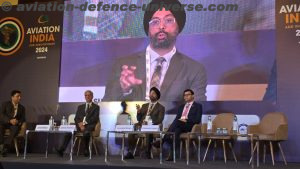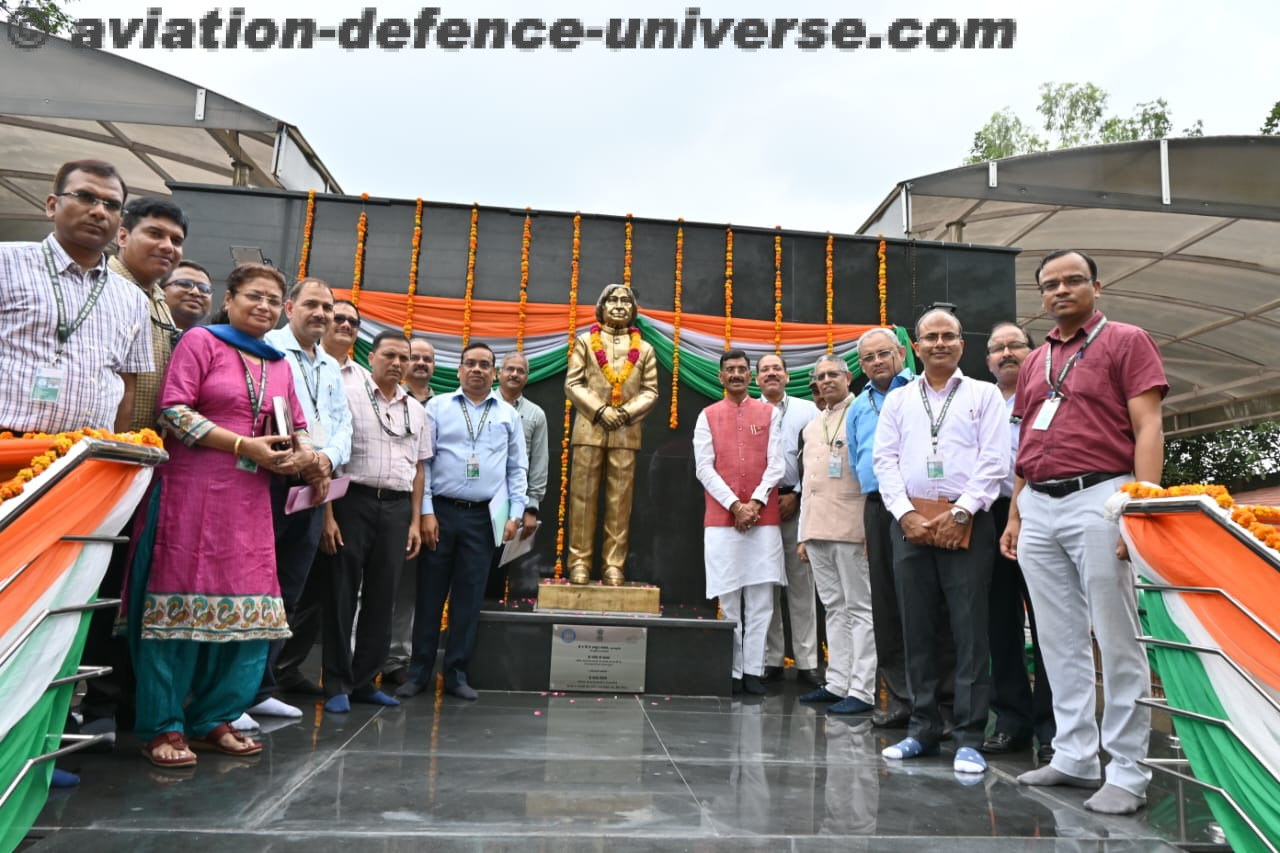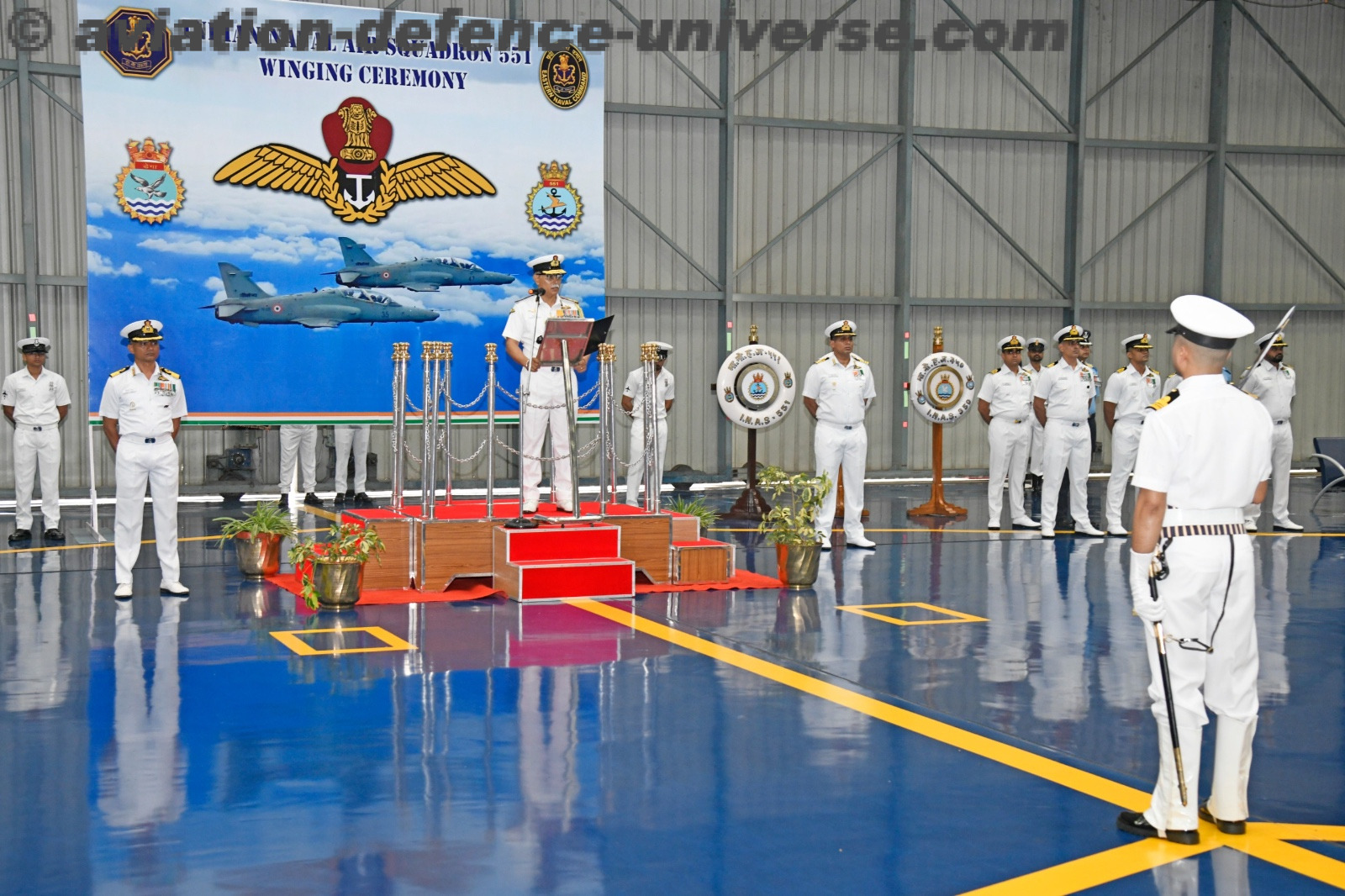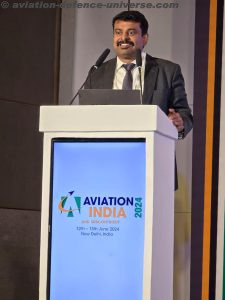New Delhi. 24 June 2024. Just as legal advice is needed for any issue under the Constitution of India, for any crime committed on land and for prevention of future activities against the rules set by rule makers, the skies and the waters of the nation too are not above the law of the land. But it needs experts to look into matters uncommon and beyond the scope of average and regular legal advice. And aviation is one such specialized area which needs exclusivity when it comes to following domestic and international rules created for keeping the skies safe. Modern India has law firms which play a crucial role in the dynamic and complex field of aviation, providing legal expertise and support across various aspects of the industry. Their functions are essential in navigating the regulatory, commercial, and operational challenges that aviation stakeholders face.
“Aviation is a very wide area from the legal perspective and advising holistically on aviation laws requires expertise and knowledge of different areas of law. I don’t think covering the entire gamut is possible for one lawyer because there are several aspects. For instance, law relating to the development of aviation infrastructure requires a different set of expertise. Then we have aircraft leasing / financing, sale and purchase of aircraft which is a separate area altogether. There is another set of laws to be considered if you are advising an airline on aspects relating to employment law as there are unions, “stated Lovejeet Singh, Partner, Chandhiok & Mahajan , Advocates & Solicitors in a conversation with Editor Aviation & Defence Universe (ADU) Sangeeta Saxena, at Aviation India 2024.
These include ensuring compliance with the Directorate General of Civil Aviation (DGCA) regulations, Ministry of Civil Aviation policies, and other relevant aviation authorities. A major need for aviation lawyers arises in licensing and certification which means they are instrumental in assisting airlines, airports, and aviation service providers in obtaining necessary licenses and certifications. Not to forget advising on the development and implementation of aviation policies and reforms.
 Lovejeet informed, “ I have advised one of the foreign airlines in the past operating in India on their terminations and trust me it is not an easy task as when it comes to termination if there is an issue of union, how to handle that because terminating an employee, if there is no union issue is way easier than terminating an employee who is a part of the labour union.” So helping airlines manage their human resource without an eruptive reactionary crisis, is also an important role of aviation law firms.
Lovejeet informed, “ I have advised one of the foreign airlines in the past operating in India on their terminations and trust me it is not an easy task as when it comes to termination if there is an issue of union, how to handle that because terminating an employee, if there is no union issue is way easier than terminating an employee who is a part of the labour union.” So helping airlines manage their human resource without an eruptive reactionary crisis, is also an important role of aviation law firms.
Employment Contracts which include drafting and negotiating for airline staff, including pilots, cabin crew, and ground staff and handling labor disputes and advising on labor relations issues within the aviation industry, also become important roles of aviation lawyers who ensure compliance with labor laws and regulations specific to the aviation sector. “ A major crisis which needs resolution is pilot issue. Pilots are governed by the requirements of DGCA. There is a separate civil aviation requirement which sets out that what a pilot needs to do, what are the responsibilities of LHS versus RHS pilot, when I say LHS versus RHS, left hand side versus right hand side or the pilot in command. To advise on these aspects, you need to be well conversant with the DGCA requirements,” he elaborated.
Niche to the industry is sale and purchase which means structuring and negotiating aircraft leasing and financing agreements, including sale and leaseback transactions. Mergers and Acquisitions are another very specialized activities within the aviation sector and the legal teams need to be experts in due diligence, negotiation, and regulatory approval. Drafting and negotiating various commercial agreements such as joint ventures, partnerships, and service contracts, will be the expertise aviation sector looks forward to from it’s legal advisory team.
 Then there are other contracts applicable to aviation industry such as engine agreements, agreements with MROs, general sales agency agreement which are governed by different laws. Dealing with insolvency issues requires expertise in different set of laws. There are other aspects to the aviation, say for example ground handling issues, there are legal complications in that area as well, and code sharing issues for the airlines, so to my mind there are several issues and to be an expert in all the laws is not practically possible, “said Lovejeet. For an individual yes but for a firm it should not be a great challenge as the team can have experts from different areas as per the need of the industry.
Then there are other contracts applicable to aviation industry such as engine agreements, agreements with MROs, general sales agency agreement which are governed by different laws. Dealing with insolvency issues requires expertise in different set of laws. There are other aspects to the aviation, say for example ground handling issues, there are legal complications in that area as well, and code sharing issues for the airlines, so to my mind there are several issues and to be an expert in all the laws is not practically possible, “said Lovejeet. For an individual yes but for a firm it should not be a great challenge as the team can have experts from different areas as per the need of the industry.
Lawyers from aviation law firms are adept in representing clients in aviation-related disputes before courts, tribunals, and regulatory bodies. Handling arbitration and mediation proceedings to resolve disputes in a cost-effective and timely manner, managing claims related to aviation accidents, passenger compensation, and insurance disputes are also very major part of the legal help given by these firms.
Intellectual Property Right is not just an issue for research and plagiarism. Securing intellectual property rights for aviation-related technologies, brands, and trademarks. And handling disputes related to intellectual property in the aviation sector, are very major tasks undertaken by aviation lawyers.
“The next important aspect to be considered going forward time will be relating to data privacy issue, because commercial airlines are collecting passenger data, and we have personal data protection bill, which will be implemented very soon. The bill was introduced in 2023 but it has not been enacted as a law yet,” added Lovejeet.
 Advising on compliance with environmental laws and regulations impacting the aviation industry, ensuring adherence to international and national safety standards and practices, advising on passenger rights and representing passengers in disputes with airlines, ensuring airline compliance with consumer protection laws and regulations, advising on compliance with aviation security regulations and protocols, advising on international aviation agreements, treaties, and conventions, handling legal aspects of cross-border aviation transactions and operations, advising on legal matters related to the development and expansion of airports and facilitating public-private partnership (PPP) projects in the aviation sector, are major work areas of aviation lawyers. “Then we have several international laws and treaties also, it’s not just Cape Town Convention, we have Chicago Convention, Montreal. So yes, I think to sum it up it’s not just one law, it’s a gamut of law and you need different experts to handle these things,” he concluded.
Advising on compliance with environmental laws and regulations impacting the aviation industry, ensuring adherence to international and national safety standards and practices, advising on passenger rights and representing passengers in disputes with airlines, ensuring airline compliance with consumer protection laws and regulations, advising on compliance with aviation security regulations and protocols, advising on international aviation agreements, treaties, and conventions, handling legal aspects of cross-border aviation transactions and operations, advising on legal matters related to the development and expansion of airports and facilitating public-private partnership (PPP) projects in the aviation sector, are major work areas of aviation lawyers. “Then we have several international laws and treaties also, it’s not just Cape Town Convention, we have Chicago Convention, Montreal. So yes, I think to sum it up it’s not just one law, it’s a gamut of law and you need different experts to handle these things,” he concluded.
Aviation law firms in India provide indispensable legal services that help navigate the complex landscape of aviation regulation and operations. Their expertise ensures that aviation stakeholders can operate within the legal frameworks, handle disputes effectively, and engage in commercial transactions with confidence. As the aviation industry in India continues to grow, the role of aviation law firms becomes increasingly significant in supporting its development and ensuring its smooth functioning.


































































































































